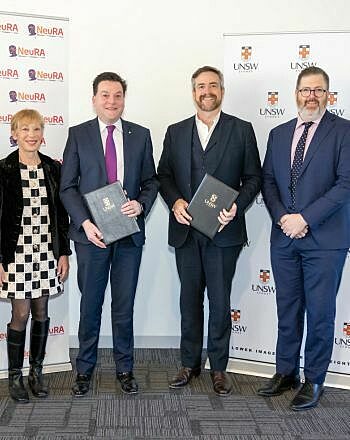- Neuroscience Research Australia
- Prince of Wales Hospital
- Royal Hospital for Women
- Sydney Children’s Hospitals, Randwick
- Children’s Cancer Institute Australia
- Black Dog Institute
- Eastern Heart Clinic
- UNSW Medicine
- UTS Faculty of Nursing, Midwifery and Health
Australia’s most prestigious hospitals, researchers and universities unite
Nine of the country’s top medical research institutes and healthcare providers, including Neuroscience Research Australia, have come together to form Australia’s first Academic Health Sciences Centre.The AHSC will be located in the same precinct at the Randwick Hospitals campus.“We’ve just signed a collaboration agreement which will effectively bring together three major teaching hospitals, four research institutes and two universities, co-located on one campus,” says Peter Joseph, chair of the group that created the AHSC.“This is the first step in a major change to the way health research, teaching and treatment are carried out in this country. The enthusiasm, energy and ownership of the concept by all of these groups is very encouraging.”The centre will integrate and harness the research, education, training and clinical expertise of each partner with the aim of maximising health outcomes for patients and the community.The institutions involved are:
20 January 2011
Media contacts



